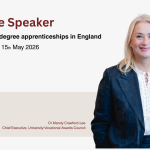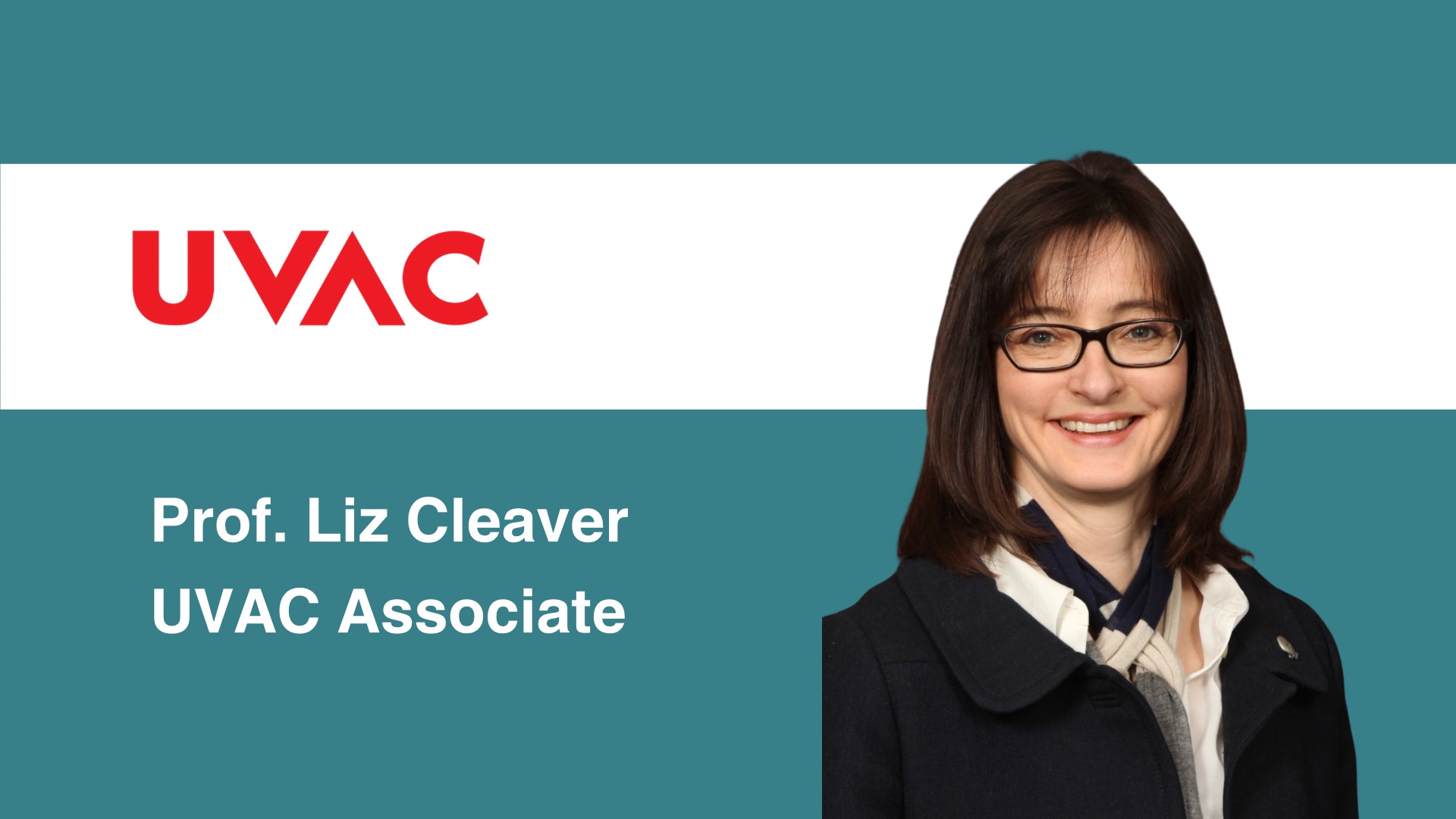Reflection on the ‘Understanding, developing and promoting Higher Technical Qualifications’ Conference
Prof. Liz Cleaver (UVAC Associate) represented UVAC last week at the ‘Understanding, developing and promoting Higher Technical Qualifications’ conference in Bristol. This was one of two regional in-person events designed to bring together policy and communications experts, employers and educational providers that are currently offering or planning to offer HTQs.
In a day focused on the evolving landscape of technical education and skills, experts from various sectors discussed the demand for higher technical skills, the importance of practical problem-solving, and the need for collaboration among education providers to foster growth and innovation. Liz reports back from the conference.
In the first session of the day Stephen Bashford (West of England Combined Authority, spoke about insights and intelligence into the demand for higher technical skills in the region. With a £1 billion investment over 30 years, the region boasts one of the highest working population growth rates, half of which is in Bristol. However, he noted that deep or emerging technology developments are brining uncertainty to employment forecasts, particularly for jobs requiring Level 4 and 5 qualifications, which currently make up 11% of job recruitments in administration and health sectors. The combined authority is also focusing on place-based interventions, particularly in relation to South Bristol’s creative industries, to build capacity and encourage first steps in this growing sector. He was joined by Loraine McIlrie (Airbus) who emphasized the ongoing importance of practical problem-solving skills, not just among experts but also interns and apprentices. These new recruits can often ask questions that challenge the status quo. Airbus values a workforce that is communicative, interactive, and willing to question, recognizing that a diverse skill set is crucial for innovation and problem-solving. To support this, Airbus encourages new employees to set their own career targets, promoting movement across different teams and areas to match individual skills with team needs.
In the second panel session we heard from Pete Myant (Department for Education) who noted the ongoing need to improve branding and recognition for Level 4/5 qualifications. He noted that the Skills for Life campaign was promoting technical education more broadly, to avoid a sense of fragmentation in the qualifications landscape. This notwithstanding, Rebecca Mameli (Pearson) reminded us that Higher Nationals (HNCs and HNDs) are now in their centenary, and are a globally recognized qualification. Many have been approved as Higher Technical Qualifications (HTQs). The focus in this new phase of Level 4 and 5 work, is ensuring employer responsiveness, flexibility, and keeping content current with the rapidly evolving landscape. While the session recognised some of the ongoing issues surrounding Level 4/5 qualifications – recognition of the qualifications, recruitment and retention of teaching staff with the appropriate skills, and the need for investment in specialist facilities – it also noted positives, such as the convenience of HTQ delivery for students (often over the age of 24) who need flexible modes of study.
Matt Tudge (Business West), David Barrett (UWE, Bristol) and Claire Arbery (Director of the West of England IoT) came together for the final session of the day. A key focus of the discussion was the importance of collaboration as a solution to ongoing challenges in HTQs and technical education delivery. By working together and recognizing each other’s unique contributions, the region’s education providers have the potential to create a sustainable and collaborative educational ecosystem that meets the needs of both businesses and learners. This provided a positive message to end the day: by fostering partnerships and adapting to the changing landscape, the region is positioning itself for continued growth and success in technical education and skills.
Thanks go to the Association of Colleges and the Gatsby Foundation for organising and supporting the day, and to the West of England IoT for hosting us all.
IN OTHER LATEST NEWS

0 days ago, Amanda Danells-Bewley

5 days ago, Amanda Danells-Bewley
NEWS BY CATEGORY
Get our latest news and events direct to your inbox - join our mailing list
Please enter your details below –


